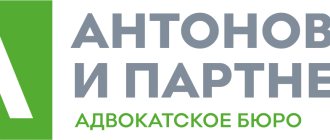1. Organization of mass riots, accompanied by violence, pogroms, arson, destruction of property, the use of weapons, explosive devices, explosives, poisonous or other substances and objects that pose a danger to others, as well as armed resistance to a representative of the authorities, as well as training a person for organization such mass riots or participation in them -
shall be punished by imprisonment for a term of eight to fifteen years.
1.1. Inducing, recruiting or otherwise involving a person in committing actions provided for in part one of this article, -
shall be punishable by a fine in the amount of three hundred thousand to seven hundred thousand rubles, or in the amount of the wages or other income of the convicted person for a period of two to four years, or without it, or by forced labor for a term of two to five years, or by imprisonment for a term of five to five years. ten years.
2. Participation in mass riots provided for in part one of this article -
is punishable by imprisonment for a term of three to eight years.
3. Calls for mass riots provided for in the first part of this article, or for participation in them, as well as calls for violence against citizens -
shall be punishable by restriction of freedom for a term of up to two years, or forced labor for a term of up to two years, or imprisonment for the same term.
4. A person undergoes training that is known to the student to be carried out for the purpose of organizing mass riots or participating in them, including the acquisition of knowledge, practical skills and abilities during physical and psychological training classes, when studying methods of organizing mass riots, rules for handling weapons , explosive devices, explosives, poisonous substances, as well as other substances and objects that pose a danger to others -
shall be punishable by imprisonment for a term of five to ten years with or without a fine in the amount of up to five hundred thousand rubles or in the amount of the wages or other income of the convicted person for a period of up to three years.
Note. A person who has committed a crime provided for in part four of this article is exempt from criminal liability if he informed the authorities about undergoing training, which the student knew was conducted for the purpose of organizing mass riots or participating in them, contributed to the disclosure of the crime committed or the identification of other persons who have undergone such training. training, those who carried out, organized or financed such training, as well as the places where it was carried out and if his actions do not contain another crime.
- Article 211. Hijacking of an air or water transport vessel or railway rolling stock
- Article 212.1. Repeated violation of the established procedure for organizing or holding a meeting, meeting, demonstration, procession or picketing
Commentary to Art. 212 of the Criminal Code of the Russian Federation
The main object of the crime is public safety.
An additional object is relations to ensure the bodily integrity of a person, his health, property, public order, normal activities of enterprises, institutions, authorities and management.
By mass riots, the legislator understands a crime that violates public safety and can cause grave consequences in the economic, political, environmental, military sphere, and paralyze the activities of public authorities and administration.
The objective side of the crime (Part 1 of Article 212 of the Criminal Code of the Russian Federation) consists of organizing mass riots, accompanied by violence, pogroms, arson, destruction of property, the use of firearms, explosives or explosive devices, as well as armed resistance to a representative of the authorities.
The organization of mass unrest is recognized as active actions to organize, gather a crowd, calls for all citizens at the scene of the commission of a crime to join a certain group of “activists” to commit pogroms, arson, destruction of property, the use of firearms, explosives or explosive devices, as well as rendering armed resistance to government officials, explanation of the motives and reasons for committing these actions; further determination of the direction of movement of the crowd, the specific content of its actions, giving signals to begin actions, etc. In a number of cases, when organizing mass riots, work is carried out to arm the rioters and prepare items that can be used by them as weapons. The organizers plan the development of unrest, distribute roles among themselves during its implementation, prepare and train so-called provocateurs and militants, influence the mood of people directly at the event, distributing leaflets with calls for violent action, and organize speeches by specially trained speakers. The actions of organizers carried out on the grounds of inciting national or religious hatred are especially dangerous, since, as practice shows, in these cases, as a rule, attacks on people’s lives are inevitable. Already directly during the commission of mass riots, the organizers personally or through their proxies direct the actions of the crowd, coordinate them for the most effective resistance to law enforcement agencies, constantly maintain an excited and aggressive mood among people by putting forward new slogans, communicating information that causes indignation of people.
———————————
Soloviev A. Mass riots: organization, participation, calls for insubordination // Russian justice. 2000. N 7.
Mass riots accompanied by violence are understood as the infliction of beatings by a crowd on random victims, government officials, local government officials, the infliction of light or moderate harm to health, and torture of victims. If during mass riots their participants cause serious harm to the health of one or more victims or death, then the act is qualified in conjunction with Art. Art. 212 and 111, 105 of the Criminal Code of the Russian Federation.
A pogrom is the destruction and desecration of buildings, structures, residential buildings, vehicles, and infrastructure.
Arson is the deliberate ignition of property, buildings, structures, residential buildings, cars and other vehicles.
Destruction of property means bringing it into a state unsuitable for use, which is impossible or economically impractical to restore.
The use of firearms, explosives or explosive devices means their use to cause harm to human health, destruction, damage to property, as well as the threat of immediate use (on the issue of the use of firearms, see the commentary to Article 206 of the Criminal Code of the Russian Federation).
Providing armed resistance to a representative of the authorities means active opposition by participants in mass riots to representatives of the authorities (police officers, special services, military personnel performing duties to protect public order, vigilantes, etc.) by using or threatening to use weapons (firearms or cold steel) when performing their assigned duties. their duties, as well as other representatives of any branch of government.
The composition of the organization of mass riots is formal, responsibility comes for actions that culminated in the gathering, creation of a crowd that followed the calls of the organizer and began pogroms, arson, etc., regardless of the consequences of the act of mass riots.
The subjective side of organizing mass riots is characterized by direct intent. The perpetrator realizes that he is organizing mass riots and wants to carry out these actions. The motives for the crime do not affect qualifications. They can be reactionary-chauvinistic sentiments, hooligan motives, protest against the lawful or unlawful actions of officials, government officials, etc.
The general subject of organizing mass riots is a sane person who has reached the age of sixteen.
Part 2 of Art. 212 of the Criminal Code of the Russian Federation establishes liability for an independent crime - participation in mass riots, provided for in Part 1 of Art. 212 of the Criminal Code of the Russian Federation. Participation in mass riots is the commission by a person of violent acts, pogroms, arson and other acts listed in Part 1 of Art. 212 of the Criminal Code of the Russian Federation. If a person is in a crowd, but does not commit any of those listed in Part 1 of Art. 212 of the Criminal Code of the Russian Federation, then there is no corpus delicti. If a person who is a participant in mass riots commits acts not provided for in Part 1 of Art. 212 of the Criminal Code of the Russian Federation, for example, steals property from a destroyed building, causes death to someone, commits rape, then such actions require independent qualification under the relevant articles of the Criminal Code of the Russian Federation.
The subjective side of participation in mass riots is characterized by direct intent.
The subject of the crime is common. A sane person who has reached the age of sixteen can be recognized as a participant in mass riots.
In Part 3 of Art. 212 of the Criminal Code of the Russian Federation contains another independent crime - calls for active disobedience to the legal demands of government officials and for mass riots, as well as calls for violence against citizens.
The corpus delicti of this crime occurs if the person made a corresponding persistent proposal to a personally unspecified wide range of persons. In contrast to appeals to potential participants in mass riots, aimed at immediately organizing mass riots under Part 1 of Art. 212 of the Criminal Code, actions under Part 3 of Art. 212 of the Criminal Code are calls of a general nature. Statements can be voiced, transmitted using the media, presented in the form of leaflets, etc.
Attention should be paid to the fact that in Part 3 of Art. 212 of the Criminal Code of the Russian Federation refers to calls specifically for active disobedience to legal requirements, which can be expressed in resisting police officers, building barricades, using smoke bombs, etc. Calls for passive disobedience do not form part of the crime in question.
The corpus delicti of this crime is formal, the act is completed from the moment of dissemination of calls for active disobedience to the legal demands of government officials, mass riots, violence against citizens (on the concept of calls, see also the commentary to Article 205.2 of the Criminal Code of the Russian Federation).
The general subject of the crime is a sane person who has reached the age of sixteen.
Judicial practice under Article 212 of the Criminal Code of the Russian Federation
Resolution of the Presidium of the Supreme Court of the Russian Federation dated February 22, 2017 N 43-P17
implies the possibility of imposing a sentence of imprisonment on a person only on the condition that his violation of the established procedure for organizing or holding a meeting, meeting, demonstration, procession or picketing entailed the loss of a public event of a peaceful nature (if the relevant violation does not fall under the elements of a crime provided for in Article 212 of the Criminal Code of the Russian Federation “Mass riots”) or causing or a real threat of causing significant harm to the health of citizens, property of individuals or legal entities, the environment, public order, public safety or other constitutional protected values, despite the fact that without imposing this type of punishment it is impossible to ensure the achievement of the goals of criminal liability for the crime provided for in this article.
Appeal ruling of the Judicial Collegium for Criminal Cases of the Supreme Court of the Russian Federation dated November 28, 2018 N 5-APU18-83
examined in open court the material on the appeal of M.A. Tyshkovsky. to the resolution of the Moscow City Court dated September 26, 2021, by which the resolution of the Deputy Prosecutor General of the Russian Federation dated August 27, 2021 on extradition to the competent authorities of the Republic of Belarus for criminal prosecution under Part 2 of Art. 205, part 2 art. 212 of the Criminal Code of the Republic of Belarus
Resolution of the Presidium of the Supreme Court of the Russian Federation dated December 19, 2018 N 257-P18
Buchenkov Dmitry Evgenievich, ..., was detained on December 2, 2015 in accordance with Art. Art. 91, 92 of the Code of Criminal Procedure of the Russian Federation on suspicion of committing crimes under Part 2 of Art. 212, part 1 art. 318 of the Criminal Code of the Russian Federation.
Resolution of the Presidium of the Supreme Court of the Russian Federation dated March 6, 2019 N 186-P18
According to the verdict of the Tverskoy District Court of Moscow dated December 8, 2005, Chernova N.Yu. convicted under Part 2 of Art. 212 of the Criminal Code of the Russian Federation to imprisonment for a period of 3 years to be served in a general regime correctional colony. By cassation ruling of the judicial panel for criminal cases of the Moscow City Court dated March 29, 2006, the verdict of December 8, 2005 against Chernova N.Yu. left unchanged.
Appeal ruling of the Judicial Collegium for Criminal Cases of the Supreme Court of the Russian Federation dated 01.03.2019 N 48-APU19-1
- convicted under Part 1 of Art. 212 of the Criminal Code of the Russian Federation for 10 years of imprisonment in a special regime correctional colony. Cherepanov Alexander Aleksandrovich, ... convicted: 1) April 15, 2011 under clause “a”, part 3 of art. 158 of the Criminal Code of the Russian Federation (as amended by Federal Law No. 26 of March 7, 2011) to punishment in the form of imprisonment for a term of 2 years 10 months, released on August 14, 2013 upon completion of the sentence; 2) November 5, 2014 under paragraph “c” of Part 2 of Art. 158, paragraph “c”, “g”, part 2 of Art. 158 of the Criminal Code of the Russian Federation to punishment in the form of imprisonment for a period of 1 year 6 months, released on October 13, 2015 on the basis of clause 5 of the Resolution of the State Duma of the Russian Federation of April 24, 2015 “On amnesty”, criminal record not expunged,
Appeal ruling of the Judicial Collegium for Criminal Cases of the Supreme Court of the Russian Federation dated 06/05/2019 N 4-APU19-16
convicted under Part 2 of Art. 212 of the Criminal Code of the Russian Federation to 3 years in prison, and according to the totality of sentences determined according to the rules of Art. of the Criminal Code of the Russian Federation, by adding part of the unserved sentence under the sentence of September 26, 2014 - to 3 years 11 months of imprisonment to be served in a general regime correctional colony, with the time of detention of M.M. Rumyantsev counted towards the term of imprisonment. in custody from December 28, 2021 to March 4, 2021 inclusive, taking into account the provisions provided for in Part 3.1 of Art. Criminal Code of the Russian Federation,
Appeal ruling of the Judicial Collegium for Criminal Cases of the Supreme Court of the Russian Federation dated April 12, 2019 No. 5-APU19-20
- convicted: under Part 1 of Art. 212 of the Criminal Code of the Russian Federation to 10 years in prison, under paragraph “c” of Part 3 of Art. 286 of the Criminal Code of the Russian Federation to 5 years of imprisonment with deprivation of the right to engage in activities related to the provision of services to citizens in state and municipal institutions, state corporations, state companies, state and municipal unitary enterprises for a period of 2 (two) years 6 (six) months.
Appeal ruling of the Judicial Collegium for Criminal Cases of the Supreme Court of the Russian Federation dated August 15, 2019 N 67-APU19-9
convicted under Part 1 of Art. and part 2 of Art. 212 of the Criminal Code of the Russian Federation to 3 years of imprisonment in a general regime correctional colony. The fate of the material evidence is determined by the verdict. Anatoly Vasilyevich Plotnikov was convicted by the same sentence, against whom the sentence was not appealed.
Appeal ruling of the Judicial Collegium for Criminal Cases of the Supreme Court of the Russian Federation dated September 3, 2019 N 48-APU19-14
convicted under Part 1 of Art. 212 of the Criminal Code of the Russian Federation (as amended by Federal Law No. 63-FZ of June 13, 1996) for 4 years in prison. In accordance with Part 1 of Art. According to the totality of sentences of the Criminal Code of the Russian Federation, the unserved part of the sentence under the verdict of October 24, 2002 was partially added to the imposed punishment and a final sentence of 4 years and 3 days of imprisonment to be served in a high-security correctional colony was imposed.
Determination of the Constitutional Court of the Russian Federation dated October 24, 2019 N 2734-O
According to the Criminal Procedure Code of the Russian Federation, the court, having heard the last word of the defendant, retires to the deliberation room to pronounce the verdict, announcing this, as well as the time of announcement of the verdict, to those present in the courtroom (Article 295); the verdict is decided by the court in the deliberation room (part one of Article 298); corrections in the verdict must be agreed upon and certified by the signatures of all judges in the deliberation room before its proclamation (part three of Article 303); after signing the verdict, the court returns to the courtroom and the presiding judge announces the verdict (part one of Article 310); the verdict is pronounced in an open court session, and in the case of a criminal case being considered in a closed court session or in the case of a criminal case on crimes in the field of economic activity, on crimes provided for in Articles 205 - 206, 208, part four of Article 211, part one of Article 212 , Articles 275, 276, 279 and 281 of the Criminal Code of the Russian Federation, on the basis of a ruling or court order, only the introductory and operative parts of the sentence can be announced (part seven of Article 241); within five days from the date of proclamation of the verdict, copies of it are handed over to the convicted or acquitted person, the defense lawyer and the prosecutor (Article 312).
Cassation ruling of the Judicial Collegium for Criminal Cases of the Supreme Court of the Russian Federation dated November 5, 2019 N 18-UD19-103
- March 11, 2012 under Part 2 of Art. 212 of the Criminal Code of the Russian Federation to 2 years in prison, on the basis of Art. of the Criminal Code of the Russian Federation to 2 years 10 months of imprisonment; - December 8, 2014 under Part 1 of Art. 119 of the Criminal Code of the Russian Federation to 250 hours of compulsory work, by a resolution of April 13, 2015, compulsory work was replaced by 31 days of imprisonment;
Article 212.1.
Repeated violation of the established procedure for organizing or holding a meeting, meeting, demonstration, procession or picketing Commentary on Article 212.1
1. According to Art. 31 of the Constitution, citizens of the Russian Federation have the right to assemble peacefully, without weapons, to hold meetings, rallies and demonstrations, processions and picketing. This right of citizens to peaceful public events is a necessary guarantee for the formation of a democratic civil society. Moreover, in accordance with Part 3 of Art. 55 of the Constitution, the rights and freedoms of man and citizen may be limited by federal law only to the extent necessary in order to protect the foundations of the constitutional system, morality, health, rights and legitimate interests of other persons, ensuring the defense of the country and the security of the state. These fundamental constitutional provisions comply with the requirements of Part 1 of Art. 20 of the Universal Declaration of Human Rights that everyone has the right to freedom of peaceful assembly and association, Art. 21 of the International Covenant on Civil and Political Rights, that the enjoyment of such a right shall not be subject to any restrictions other than those imposed in accordance with the law and which are necessary in a democratic society in the interests of state or public safety, public order, or the protection of public health and morals or protecting the rights and freedoms of others. On the basis of the Constitution, generally recognized principles and norms of international law, international treaties of the Russian Federation, the legislation of the Russian Federation related to ensuring the right to hold meetings, rallies, demonstrations, processions and picketing is determined, as expressly stated in Art. 1 of the Federal Law of June 19, 2004 N 54-FZ “On meetings, rallies, demonstrations, processions and pickets.” For obstructing the holding of an assembly, rally, demonstration, procession, picketing or participation in them, criminal liability is provided for under Art. 149 of the Criminal Code (see commentary to it). 2. The objective side of the crime is expressed in actions that violate the established procedure for organizing or holding a meeting, meeting, demonstration, procession or picketing, if this act is committed repeatedly. The concept of repetition is given in the note. to comment article, according to which a violation of the established procedure for organizing or holding a meeting, meeting, demonstration, procession or picketing, committed by a person repeatedly, is recognized as a violation of this procedure, if this person has previously been brought to administrative responsibility for committing administrative offenses under Art. 20.2 of the Administrative Code, more than twice within 180 days. It follows from this that a person can be brought to criminal liability under Art. 212.1 of the Criminal Code only if it commits an administrative offense under Art. 20.2 of the Code of Administrative Offences, at least for the fourth time and if it has previously been brought to administrative responsibility at least three times for such administrative offenses within 180 days. If a person is brought to administrative responsibility for a third administrative offense at a later date, for example on 181 days, then there is no repetition. In addition, it is necessary that by the time a person is brought to criminal liability, all previously issued court decisions (at least three) on bringing him to administrative responsibility for committing administrative offenses under Art. 20.2 of the Code of Administrative Offences, entered into legal force. This follows from the requirements of Part 2 of Art. 1.5 of the Code of Administrative Offences, that a person against whom proceedings are being conducted for an administrative offense is considered innocent until his guilt is proven in the manner established by the Code of Administrative Offences, and is established by a decision of the judge, body, official who has considered the case that has entered into legal force case, and art. 31.1 of the Code of Administrative Offenses, which determines the procedure for a resolution in a case of an administrative offense to enter into legal force. It is also necessary to take into account the requirements of Art. 4.6 of the Code of Administrative Offences, which states that a person who has been imposed an administrative penalty for committing an administrative offense is considered subject to this punishment from the date the decision on the imposition of an administrative penalty enters into legal force until the expiration of one year from the date of execution of this punishment. Resolution of the Constitutional Court of the Russian Federation dated February 10, 2017 N 2-P “In the case of verifying the constitutionality of the provisions of Article 212.1 of the Criminal Code of the Russian Federation in connection with the complaint of citizen I.I. Dadin”, convicted under Art. 212.1 of the Criminal Code, it is recognized that Art. 212.1 of the Criminal Code does not contradict the Constitution of the Russian Federation, since the provisions contained in it allow, in particular: to subject to criminal prosecution for violating the established procedure for organizing or holding a meeting, meeting, demonstration, procession or picketing a person who has previously been brought to administrative charges at least three times within 180 days liability for administrative offenses provided for in Art. 20.2 of the Code of Administrative Offenses, if this person, within the period during which he is considered subject to administrative punishment for these offenses, again violated the established procedure for organizing or holding a meeting, meeting, demonstration, procession or picketing; exclude the possibility of bringing to criminal liability for violating the established procedure for organizing or holding a meeting, meeting, demonstration, procession or picketing of a person in respect of whom, at the time of committing the act incriminated against him, there were no judicial acts that had entered into legal force on prosecution at least three times within 180 days to administrative liability for administrative offenses provided for in Art. 20.2 Code of Administrative Offences. Taking into account this Resolution of the Constitutional Court of the Russian Federation, the Resolution of the Presidium of the Armed Forces of the Russian Federation resumed the criminal proceedings against the convicted person under Art. 212.1 Criminal Code Dadina I.I. Due to new circumstances, the court decisions taken in the criminal case were canceled, and the criminal case was terminated on the basis of paragraph 2 of Part 1 of Art. 24 of the Code of Criminal Procedure due to the lack of corpus delicti in the act. This Resolution states that at the time of Dadin’s participation I.I. in a public event held on December 5, 2014, in connection with which he was prosecuted and convicted under Art. 212.1 of the Criminal Code, there were no court decisions that had entered into legal force to bring him to administrative responsibility at least three times within 180 days for administrative offenses under Art. 20.2 Code of Administrative Offences. Consequently, to assert the repeated violations by Dadin I.I. the established procedure for holding a public event, which is one of the imperative elements of a crime under Art. 212.1 of the Criminal Code, there were no grounds. It was established that until December 5, 2014 Dadin I.I. three times brought to administrative responsibility for administrative offenses under Art. 20.2 of the Code of Administrative Offences, and was subjected to administrative penalties each time in the form of a fine according to the decisions of the judges of the district court dated September 4, 23 and 26, 2014. However, the decisions of the judges dated September 4 and 23, 2014 were appealed in the interests of I.I. Dadin. by his defender and left unchanged by the higher court only on March 16, 2015, although by this time Dadin I.I. has already been prosecuted. Only the judge’s decision dated September 26, 2014 was not appealed, and it entered into legal force after the expiration of the period established for appeal <1>. ——————————— <1> See: Post. Presidium of the Armed Forces of the Russian Federation dated February 22, 2017 N 43-P17.
3. In art. 2 of Federal Law No. 54-FZ of June 19, 2004 defines the concepts of meeting, rally, demonstration, procession or picketing. A meeting is the joint presence of citizens or a collective in a specially designated or adapted place for a collective discussion of any socially significant issues. A rally is a mass presence of citizens in a certain place for the public expression of public opinion on current issues of a primarily socio-political nature. A demonstration is an organized public expression of public sentiment by a group of citizens using posters, banners and other means of visual propaganda while moving, including on vehicles. A procession is a mass passage of citizens along a predetermined route in order to attract attention to any problems. Picketing is a form of public expression of opinions carried out without movement and the use of sound-amplifying technical means by placing one or more citizens at the picketed object using posters, banners and other means of visual propaganda, as well as prefabricated prefabricated structures. 4. The crime is formal and is considered completed from the moment of violation of the established procedure for organizing or holding a meeting, rally, demonstration, march or picketing by a person who has previously been subject to administrative punishment at least three times for administrative offenses under Art. 20.2 of the Code of Administrative Offenses, within 180 days, and all court decisions on this entered into legal force by the time the person was brought to criminal responsibility. 5. The subjective side of the crime is characterized by direct intent . The subject is aware that he is committing a violation of the established procedure for organizing or holding a meeting, meeting, demonstration, procession or picketing, having previously been charged with such an administrative offense at least three times within 180 days, and wishes to do so. The motive and purpose can be anything, they do not matter for qualification, but can be taken into account when assigning punishment. 6. The subject of the crime is a person who has reached the age of 16, who has previously been brought to administrative responsibility at least three times within 180 days under Art. 20.2 Code of Administrative Offences.






